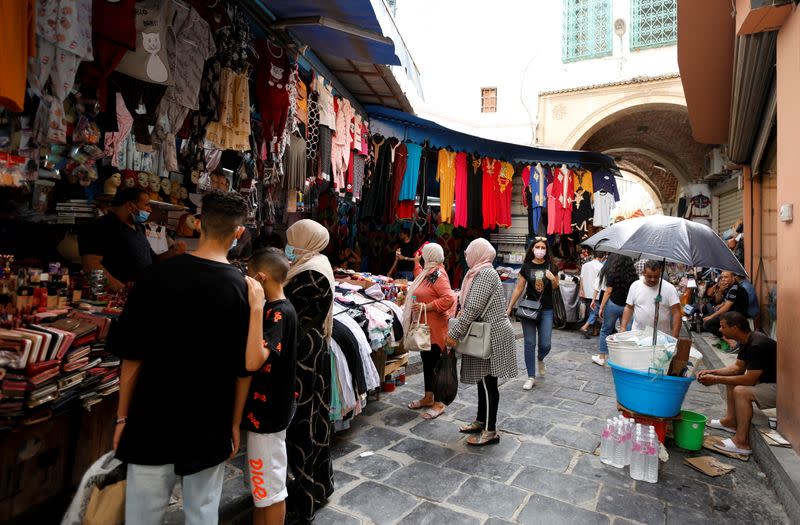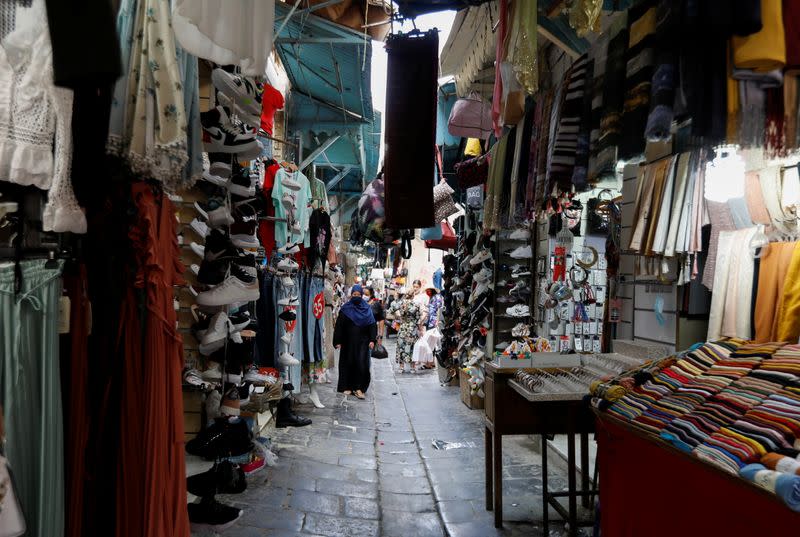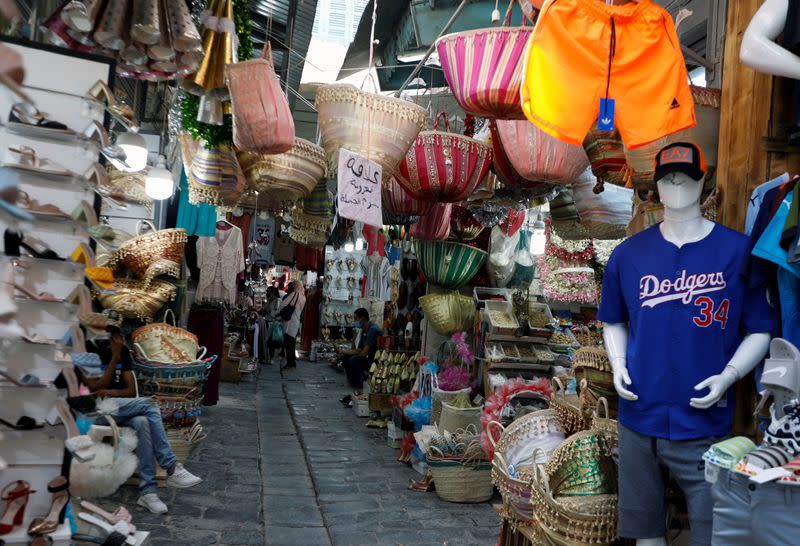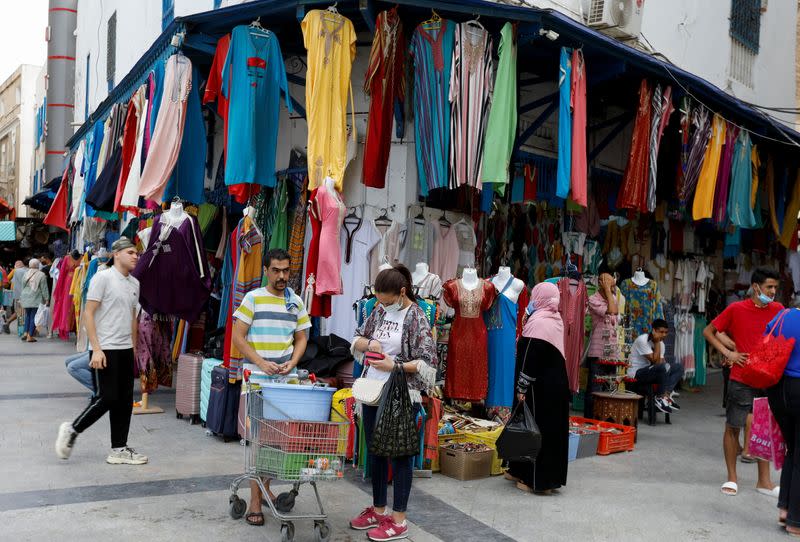In Tunis bazaar, traders say economic woes set stage for crisis
By Jihed Abidellaoui
TUNIS (Reuters) - In the tourist bazaar in the Old City of Tunis, embroidered scarves, clay pots and ornaments spill out from store fronts into the narrow alleyways. But few people are browsing, reflecting the misfortunes that have afflicted Tunisia's vital tourist industry for years.
The inactivity highlights the economic stagnation that has soured many Tunisians on democracy, setting the stage for the country's worst political crisis since a popular uprising toppled veteran autocrat Zine El-Abidine a decade ago.
Sitting on a stool surrounded by intricately decorated mirrors, plates and boxes, store-owner Monther charts the start of the economic troubles to the 2011 revolt, which ignited a wave of uprisings known as the Arab Spring.
"Since the revolution, everything has gone backwards - from bad to worse when you consider tourism. At this time of year, the market used to be crowded with visitors, but now it is the opposite, there are just a few people," he said.
Sharply exacerbated by the pandemic, the economic troubles explain partly why many Tunisians supported President Kais Saied's decision to freeze parliament and sack the prime minister on Sunday.
His actions, aided by the army, were decried as a coup by opponents, including the moderate Islamist party Ennahda. Western states that have praised Tunisia's democratic path have expressed concern.
Washington urged Saied to stick to democratic principles.
But many Tunisians took to the streets to show support for what Saied described as an attempt to save a crumbling country, reflecting anger at economic malaise and political paralysis.
Since the 2011 uprising, tourism, which once accounted for nearly a tenth of Tunisia's GDP, has suffered repeated blows.
First came the impact of the uprising itself and the instability that followed, which deterred all the but the most intrepid holiday-makers to a once popular destination offering Mediterranean beaches, Arab and Islamic culture, the remains of ancient Carthage and the set of Star Wars.
Then, in 2015, foreign tourists were directly targeted in militant attacks: Islamic State killed 22 people at a museum, and a lone gunman killed 38 people on a beach.
In 2019 Tunisia seemed to reclaim its status, attracting a record 9.5 million visitors, but the pandemic killed off hopes of a revival and the number plummeted by 78% in 2020.
To its critics, the government's handling of the pandemic captured its wider failings. Ahead of his decision to freeze parliament, Saied ordered the army to take over management of the health crisis.
Abdesattar Massoudi, owner of an artisanal store in the bazaar, said Tunisians' patience had run out and he backed Saied's actions.
"After 10 years, people were patient until this explosion came, and this was expected. For me, I saw it coming and I think it's a little bit late," he said.
Saied, a political independent elected in 2019, had been at loggerheads with Prime Minister Hichem Mechichi and the main parties in the fragmented parliament, which have all accused him of breaching the constitution.
Mouhammed Rezgui, who sells jewellery in the bazaar, indicated his fatigue with factional bickering. "We must stand for our country, not by dividing people according to political affiliation. We are all Tunisians."
(Writing by Tom Perry; Editing by Alexandra Hudson)

 Yahoo Finance
Yahoo Finance 









